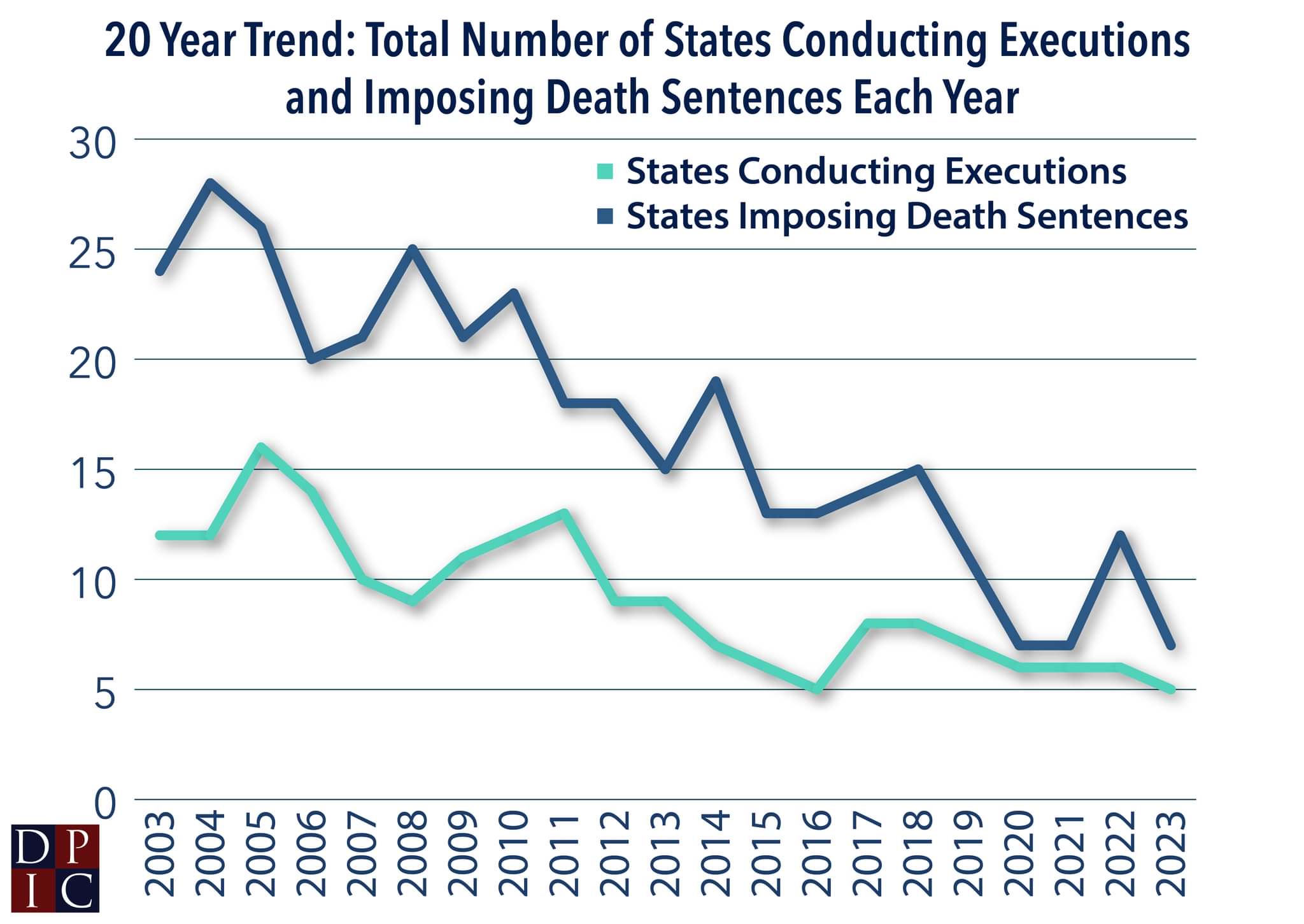
I have been working at EJUSA for almost 19 years, all of them spent beating back our legacy of killing people as punishment for harm they committed. State by state, we have repealed death penalty laws or convinced governors to halt executions to end this terrible, misguided practice that does not make us safer. Now, only 10 states remain that have had an execution in the last five years.
Each December brings a measure of inspiration, when the Death Penalty Information Center releases their year-end report. This year offered more of the same affirming news. Yes, the number of executions ticked up slightly (check out the report to learn why). But the big view is clear: as a nation, we continue to move away from the death penalty.
For the ninth year in a row, there were fewer than 30 people executed — 24 in total.
For the ninth year in a row, juries delivered fewer than 50 death sentences — 21 in total.
Just five states executed a person this year; just seven delivered death sentences.
And a new poll revealed something amazing: for the first time, more Americans believe the death penalty is administered unfairly.
That reminds me of another fact that drives all of us in this movement: the death penalty preys upon specific people. This year, nearly 80% of those executed lived with “serious mental illness; brain injury, developmental brain damage, or an IQ in the intellectually disabled range; and/or chronic serious childhood trauma, neglect, and/or abuse.”
Eight of the 24 people executed experienced all three.
This matters because proponents have to dehumanize people in order to rationalize their killing. Prosecutors make these people out to be “monsters” who can’t be redeemed. But the fact is that all of them needed help — probably throughout their lives — and we as a society failed them.
Dehumanization made slavery and racial terror possible. It made lynchings and Jim Crow laws possible. We wouldn’t still have the worst mass incarceration problem in the world if not for our efforts to dehumanize.
This report is vital in so many ways, especially because it reminds us that every person those five states killed was a child at one point with potential and needs, just like all of us.




